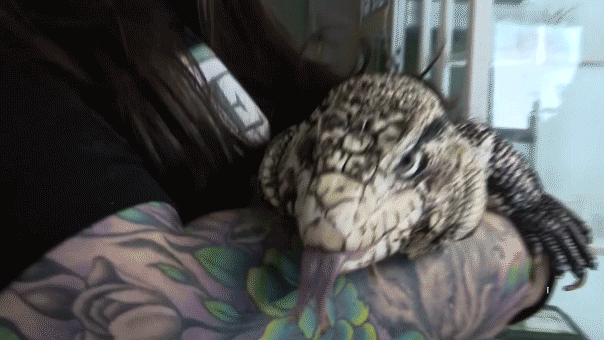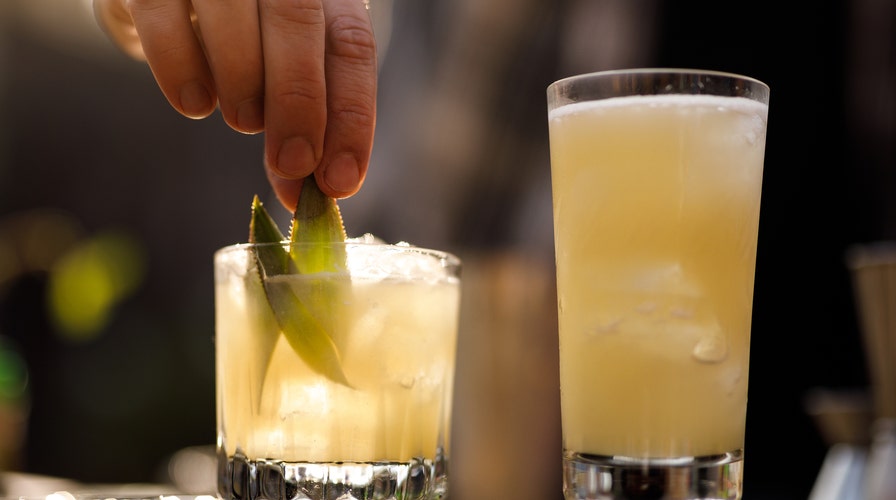Fox News Flash top headlines for May 29
Fox News Flash top headlines are here. Check out what's clicking on Foxnews.com.
For Liz Mantel, the wake-up call came when she lost her job last September.
She had worked for years as a client manager in advertising, an industry where, she said, "boozing is a prerequisite for the job."
"Agencies have bars in the office, and you’re always entertaining clients," said the 30-year-old from Williamsburg, Brooklyn. "[Before the pandemic,] every day included alcohol of some kind — for the job, for dating, for friends."
Then she lost her job because of the pandemic. Her romantic relationship came to an end. And suddenly she wasn’t spending boozy nights out with friends and colleagues anymore. Mantel decided it was time to "get off the hamster wheel, be more mindful and reassess what I’m doing to my body."
It started with a 30-day break from alcohol that’s now lasted six months. But now that the weather is warming up and people are getting vaccinated, she didn’t want to give up a good time.
Mantel is one of countless sober-curious New Yorkers fueling the post-pandemic "zero proof" movement: an explosion of booze-free drinks, bottle shops and bars putting a chic spin on teetotaling.
SOUTHWEST AIRLINES BRINGING BACK ALCOHOL: REPORT
A recent study by the American Psychological Association reported that nearly a quarter of adults were drinking more to manage stress during the pandemic. But, for some, drinking has only exacerbated their physical and mental health problems.
Many, like Mantel, realized they were overdoing it.
"People reexamined a lot of things in their life [over the past year], including how much they drank alcohol," said Sam Thonis, who opened the booze-free pub Getaway Bar in Greenpoint in 2019. (It turned into a coffee shop and alcohol-free general store during the pandemic, and Thonis plans the bar’s return sometime this spring.)
"I heard somebody put it this way," he added. "‘COVID wouldn’t make you an alcoholic, but if you had a drinking problem COVID would let you know.’"
Even Chrissy Teigen announced her new sobriety in December, fueled by reading the book "Quit Like a Woman: The Radical Choice to Not Drink in a Culture Obsessed with Alcohol" by New Yorker Holly Whitaker. "I was done with making an ass of myself in front of people (I’m still embarrassed), tired of day drinking and feeling like s–t by 6, not being able to sleep," Teigen said of her decision.
Meanwhile, some New Yorkers found themselves drinking less since they weren’t going out — and not missing it.
"The pandemic became an opportunity to explore sobriety because there was no social pressure to drink," said Brooklynite Julia Bainbridge, author of recent release "Good Drinks: Alcohol-Free Recipes for When You’re Not Drinking for Whatever Reason" (Ten Speed Press).
And, as with many pandemic trends (at-home workout equipment, stylish casual wear), the booze-free boom has created business opportunities.
Brooklyn Brewery introduced a pair of non-alcoholic beers, Special Effects IPA and Hoppy Amber, late last year. The Williamsburg brewery has been joined by countless other craft brewers offering beers without the buzz.
Bottle shops such as Spirited Away on the trendy Lower East Side and Boisson in family-friendly Cobble Hill opened in recent months —offering an ever-growing array of non-alcoholic beers, wines and spirits.
And it’s not just local boutiques behind the trend. Whole Foods Markets sells a growing selection of zero-proof products, too.
Douglas Watters opened Spirited Away in November. He said the zero-proof movement was bubbling under for the past couple years but that the pandemic "was like pouring gas on the fire and the trend exploded."
Barrie Arnold had the idea to open his shop, Boisson, in January. The pandemic forced the software salesman to confront his own connection with alcohol after he left New York City for Florida when the lockdown kicked in last spring.
"I lost a relationship, I lost my job and I lost the city that I love all within two weeks of each other," said Arnold, 39, who returned to New York City in September. "I found it better to deal with life without alcohol on my plate."
He’s now opened a second spot in Greenwich Village and is planning a third on the Upper East Side.
Among the offerings at Boisson are alcohol-free Rasavada spirits in flavors like Rose Bergamot and Black Ginger ($40 for 375ML), and Kentucky ’74 ($40 for 750ML — a "bourbon" from the Bluegrass State. It’s fermented and distilled just like any other bourbon, then reverse-distilled to remove all but the smallest traces of alcohol (0.5%) while retaining its classic flavor.
Brooklyn journalist Elva Ramirez, author of the new book "Zero Proof: 90 Non-Alcoholic Recipes for Mindful Drinking" (Houghton Mifflin Harcourt), said the social disruptions of the past year helped people "reassess their relationship with alcohol" — and that it’s easier than ever to feel accepted if you’re sober.
KENDALL JENNER ACCUSED OF APPROPRIATION AFTER 818 TEQUILA CAMPAIGN
"American social culture is a drinking culture," said Ramirez. "We’ve always been suspicious of people who don’t drink. What’s different now is that there’s a deluge of new products on the market and the fact that [not drinking] is seen as an individual choice, not something to be ashamed of."
John deBary, the former bar director for Momofuku restaurant group, agreed. In July, he launched Proteau, a line of non-alcoholic botanical spirits available online and at a growing number of New York City cocktail bars.
"The choice to avoid alcohol for one night or for the rest of your lie is suddenly a lot more normalized," said deBary. "People no longer think you have some sort of sob story when choose to forego alcohol."
For many zero-proof adherents, the movement is more about moderation than total sobriety.
Diana Pawlik, a consumer brand consultant from the Upper West Side, said drinking was "a massive part of my social life" in the pre-pandemic world.
But lockdown isolation inspired her to consider her health and reduce her alcohol consumption.
She began mixing non-alcoholic cocktails at home, often blending juice with shrubs — a concentrated syrup made of vinegar, fruit and sugar, often used in cocktails — and said that drinking alcohol in moderation has only heightened her appreciation for it.
The gin-based raspberry gimlet she enjoyed recently at King restaurant in the West Village "was the best cocktail I’ve ever had," Pawlik said. "Every morsel, every sip, means more now that I’m drinking less."
Author Ramirez still enjoys martinis and gin and tonics, "much the same way I still eat dairy," she said. "But I know if I eat too much ice cream it will make me sick."
The city’s first zero-proof pub, the pop-up Listen Bar, arrived in Williamsburg in the fall of 2018, and then appeared in other locations around the city. It offered much more than Shirley Temples, the sober-man mainstay cranberry and soda — or the dreaded O’Doul’s — instead focusing on creative cocktails ("mocktails" is seen as a derisive term in the industry) like the Ghost Me Maybe, an refreshing blend of grapefruit, rosemary and Thomas Henry Slim Tonic Water.
"Some people still get uncomfortable out at a bar with a friend who doesn’t like drinking," said Listen Bar founder Lorelei Bandrovschi of Bushwick. "But the culture is changing. The language is changing. It’s more acceptable to go out drinking and not order alcohol."
According to Ramirez, a UK-based product called Seedlip "revolutionized" the booze-free space when it debuted in London in 2015.
Founder Ben Branson began distilling non-alcohol spirits at home using herbs grown in his own garden. In 2019, just four years after Branson introduced his first handmade batch of 1,000 bottles, Seedlip was scooped up by global liquor giant Diageo.
Other major liquor companies, including AB InBev, which makes global brands such as Budweiser and Stella Artois, have also invested heavily in the zero-proof market in recent months.
While the "low to no-proof" segment accounts for just 3 percent of the total alcohol market, that number is expected to grow by 31 percent by 2024, according to global research firm IWSR Drinks Market Analysis.
To read more of the New York Post, click here.









































